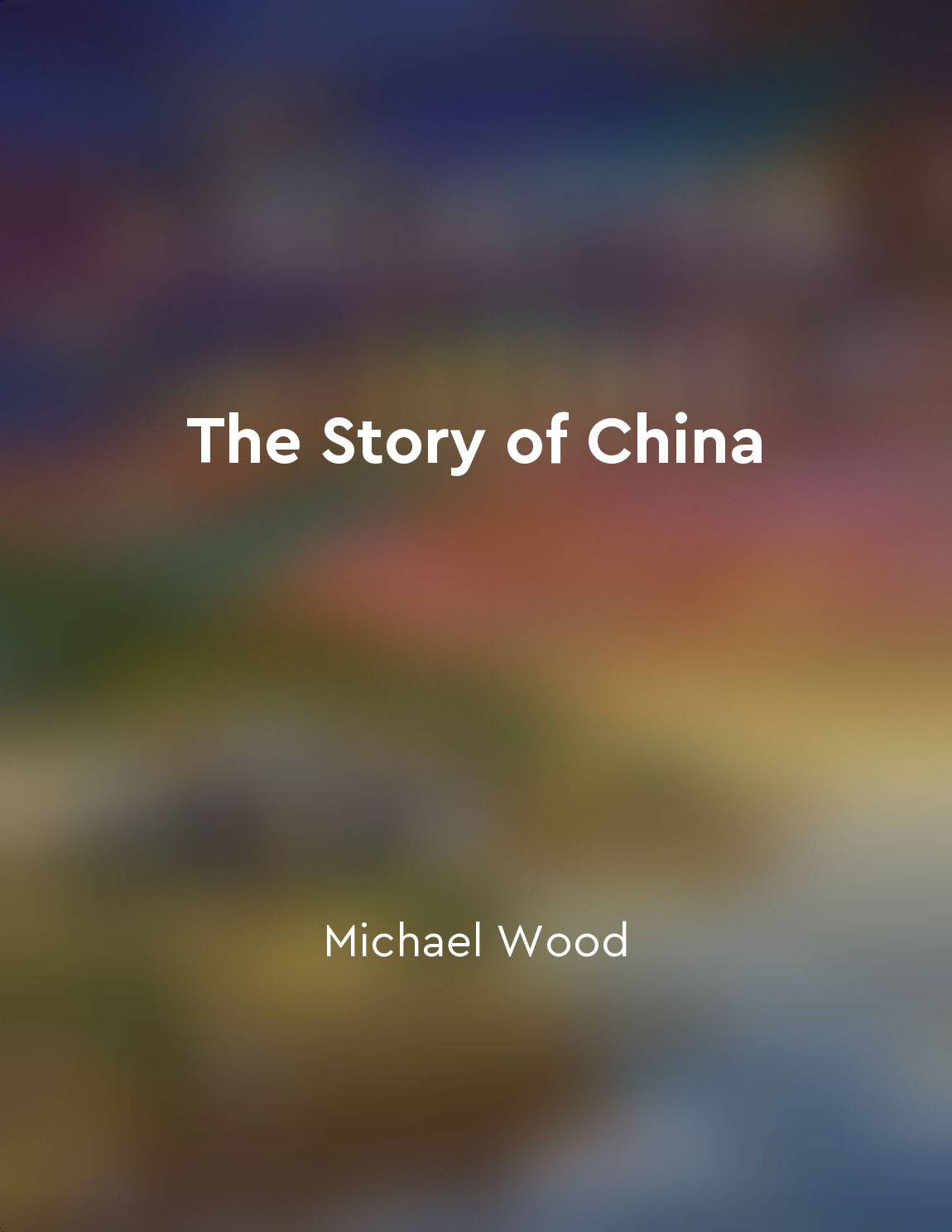Audio available in app
China's One Child Policy had unintended consequences on the population from "summary" of The Story of China by Michael Wood
The implementation of China's One Child Policy in 1979 was a drastic measure aimed at curbing the country's rapidly growing population. The government believed that limiting families to only one child would help alleviate the strain on resources and improve the overall quality of life for its citizens. However, this policy had unintended consequences that would have a lasting impact on the population of China. One of the most significant consequences of the One Child Policy was the gender imbalance that resulted from the preference for male children. In Chinese culture, sons are traditionally seen as more valuable than daughters, leading many families to selectively abort female fetuses or abandon baby girls in favor of having a son. This skewed gender ratio created a generation of young men unable to find wives, exacerbating social issues such as loneliness and depression. Furthermore, the One Child Policy disrupted the traditional family structure in China. With fewer children to support their aging parents, the burden of care fell disproportionately on only children. This created a generational divide, as the younger generation struggled to balance their responsibilities to their parents with their own aspirations for the future. The lack of siblings also deprived many individuals of emotional support and companionship, leading to feelings of isolation and loneliness. In addition to social consequences, the One Child Policy had a significant impact on the economy of China. The policy created a demographic shift towards an aging population, with fewer young people entering the workforce to support the growing number of retirees. This imbalance put pressure on the government to provide social services for the elderly, such as healthcare and pensions, further straining the country's resources.- The unintended consequences of China's One Child Policy have had far-reaching effects on the population of the country. While the policy may have achieved its goal of slowing population growth, it came at a great cost to individuals and society as a whole. The legacy of the One Child Policy continues to shape the demographic landscape of China today, highlighting the complexities of government intervention in population control.
Similar Posts
Role of financial institutions in the economy
Financial institutions play a crucial role in the economy by providing various financial services that are essential for the fu...
The impact of nature versus nurture on sex differences is complex
The interaction between nature and nurture in shaping sex differences is a multifaceted and intricate process. It involves a co...
Capital accumulation drives economic growth
The process of economic growth is driven by the accumulation of capital. Capital refers to the tools, machinery, factories, and...
Challenge your own biases to promote equality
It's easy to fall into the trap of thinking that we are free from biases, that we treat everyone equally. But the truth is, we ...

Build supportive communities for women
In order to create real change for women around the world, we must come together to form supportive communities that uplift and...
Parental support is essential in breaking down gender barriers
When it comes to breaking down gender barriers, parental support is crucial. As children navigate the world, they look to their...
Strong communities contribute to individual happiness
Derek Bok argues that the quality of our communities plays a significant role in determining individual happiness. When people ...
Woman must transcend her assigned role
The idea of woman transcending her assigned role is a fundamental concept that must be explored in depth. Society has long dict...
Family bonds are important
In the vast expanse of the earth, there is a bond that runs deeper than the roots of the oldest tree. It is the bond of family,...
Fordian society values stability
In the world state, stability is the cornerstone of our society. We have achieved this by embracing the principles of Fordism, ...


